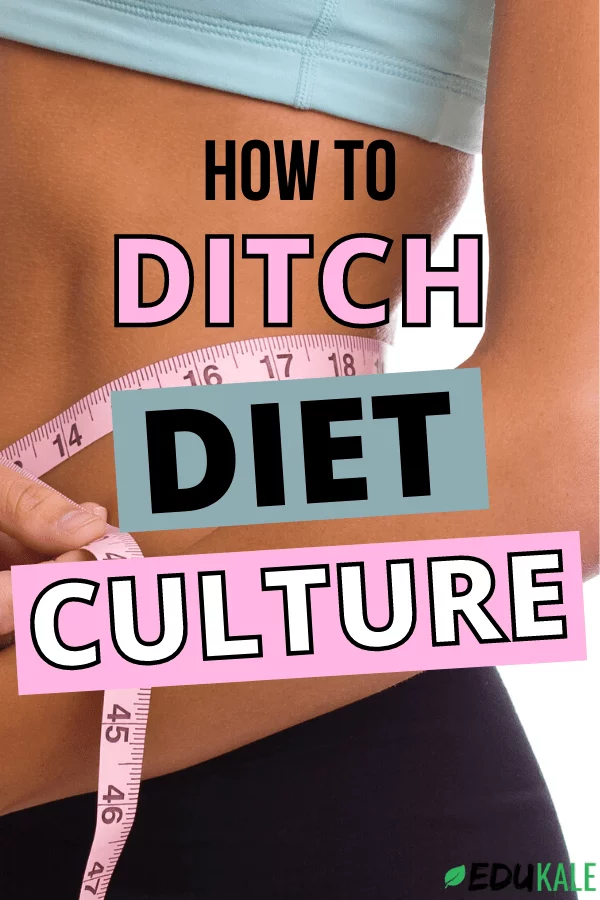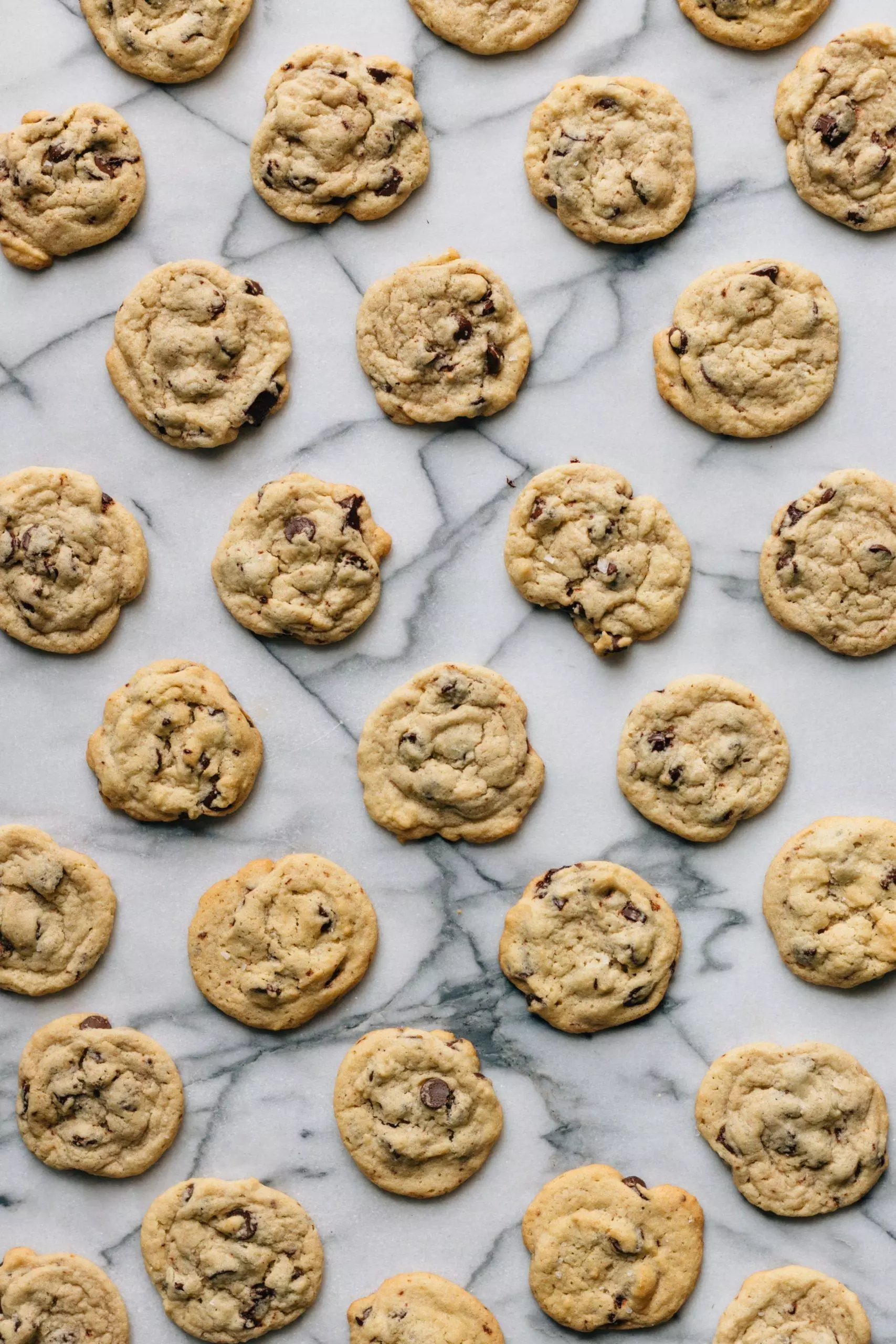This post contains affiliate links from which I may receive a small commission, at no extra cost to you. In no way does this affect my opinion or the information I provide on the product. Please read my disclaimer for more info.
For many people, especially women, dieting has pretty much always been a part of their lives.
From magazines filled with weight-loss tips to humungous billboards of skinny women, reminders of the impossibly thin ideal are omnipresent.
Some people only wish to drop just a few pounds or get more toned, while others want to go on intense detoxes and cleanses to lose half of their body weight.
People can never just be happy with their bodies. There’s always a new diet to try, a new health trend to get on, or another “body goals” to reach— it never stops.
While it’s absolutely fine to wish to lose weight if it’s for health reasons or because of personal choice, it’s not okay when you feel like weight loss is being imposed on you by societal standards. Sadly, it often is.
For these reasons, it’s important to recognize these examples of diet culture in order to ditch it for good.

What is diet culture?
Diet culture is a set of beliefs revolving around the idea that food choices have moral value and that thinness should be valued above everything else.
Being thin is seen as the ideal and automatically equated to health. Losing weight is presented as the ultimate solution for a better and healthier life.
Foods are deemed as either good or bad and so are lifestyle choices. Certain ways of eating are demonized while others are glorified.
Those who drink water and have salads after their morning yoga are superior healthy beings, while those who eat pizza and ice cream in front of Netflix are lazy and lack self-control.
The idea of balance and allowing oneself to choose the “unhealthy option” once in a while is nowhere to be found, unless you count the highly controlled cheat meals of course.
People who decide that the pursuit of health isn’t their top priority are looked down upon. It’s important to know that this disproportionally affects women, people of color, people in large bodies, and people with disabilities.

What are some examples of diet culture?
We are so ingrained in diet culture that you probably don’t even notice how present it really is. Here are just a few phrases you probably wouldn’t give a second thought to—
“I want to lose X pounds so I can look amazing at this party!”
“I wish I had your small appetite, then I could fit into skinny jeans.”
“I haven’t lost all the baby weight yet, so I don’t feel comfortable going to the beach.”
“She has such a pretty face, too bad she’s on the curvy side!”
“I feel like I would finally love my life if I could just get rid of my cellulite and love handles.”
—yet they all fuel diet culture and affirm the superiority of thin bodies.
Diet culture is also the fact that 45 million Americans go on a diet each year [1], even if they don’t work.
Studies [2] indicate that only 20% of people are successful at long-term weight loss maintenance (and some have even lower numbers.) Most of these restrictive diets aren’t working, yet people are still pouring their time, money, and energy into them instead of looking for alternate solutions.
They do this because they are driven by the desire for rapid weight loss.

Diet culture can also manifest in the form of people (especially women) being congratulated for their weight loss instead of other “greater” achievements, or ads promising you that your life will be so much better after you lose 20 pounds.
It can entail more “serious” things as well, such as facing discrimination in your workplace [3] and at your doctor’s office [4].
Diet culture also makes people believe that commenting on other peoples’ food choices is totally fine.
For instance, if I eat a salad, people are going to tell me they wish they had a small appetite like me or they wish they could discipline themselves like that. If I eat an entire pizza with pancakes for dessert, I’m going to get the “but aren’t you a nutritionist?” comment or comments on how lucky I am to be able to eat this way.
And I have the privilege of being in a thin body! Imagine how tiring it must be for bigger people to constantly feel judged and have to justify all of their food choices. You can read more about this in my article on why you don’t really need to lose weight.
How to ditch diet culture.
Now that you’re able to recognize diet culture and the harm that it can do (which is already a great step in the right direction!), here are some ways to move away from it.

First, you can speak out when you hear one of the phrases I mentioned, or other examples of diet culture. A lot of people don’t even realize what they are saying because it has been drilled in their mind for too long— you can be the one to open their eyes.
You also shouldn’t comment on someone’s weight or food choices. You have no idea what they are going through or what their health situation is. If you genuinely wish to help someone with their health, shaming their weight is never the answer.
I also encourage you to move away from the all-or-nothing-mentality and food guilt, (these articles will help you with that!) which are very much ingrained in diet culture.
It’s important to stop giving moral value to your food or even lifestyle choices. You can enjoy a salad or a workout because it makes you feel good, not to punish your body or to “be good”.
You can also enjoy a guilt-free meal at a restaurant with alcohol and dessert because it makes you feel good too.
What if I still want to get healthier and/or lose weight?
Don’t get me wrong, I think developing healthier habits should still be one of your priorities. Also, I realize that it is a privilege for thin people to criticize diet culture all while being in the bodies that society caters to.
I do understand that some people have a desire to lose weight, and that’s fine. It just needs to be done the right way, meaning no restrictive diets and as far away from diet culture as possible.
It’s also important to actually focus on your health
So many people say they’re just trying to “eat healthier” all while living on lettuce leaves and green smoothies (hint: NOT healthy). Health has become the new trend diet culture hides behind.
This should not be your goal. You need to put your health first (meaning physical and mental) and shift your main focus away from weight loss.
Sure, you should strive to have mostly healthy and balanced meals full of whole grains, healthy proteins, and fruit and veggies that you actually enjoy. But you shouldn’t deprive yourself of pizza night, drinks with friends, an ice-cream date or anything that diet culture demonizes.
While kale is great for your cells, cookies are great for your soul. One food choice isn’t inherently better than the other. It just depends on the situation.
For instance, kale will not be the preferred option if you need a quick boost of energy, just like cookies won’t be the best when you’re looking for a light, healthy, and nutrient-packed food to add to your salad.
A bowl of spinach would also be a poor choice of comfort food after a hard day, while a cupcake wouldn’t be the best breakfast option before a long work morning.
You get the idea. As usual, it’s all about balance.


Diet culture in short.
Diet culture is a set of beliefs revolving around the idea that food choices have moral value and that thinness should be valued above everything else.
There are many examples of diet culture all around us. From unconscious fat-phobic actions to globally idolized thinness, it is ingrained in our way of life.
This can lead to stigmatization, unhealthy weight loss/weight gain, restrictive dieting, poor mental health, and more. It’s important to recognize it and to move away from it as much as possible.
Developing healthier food and lifestyle habits all while loving your body during every stage, and doing so without any restrictive dieting is the way to go!
-Lucie

